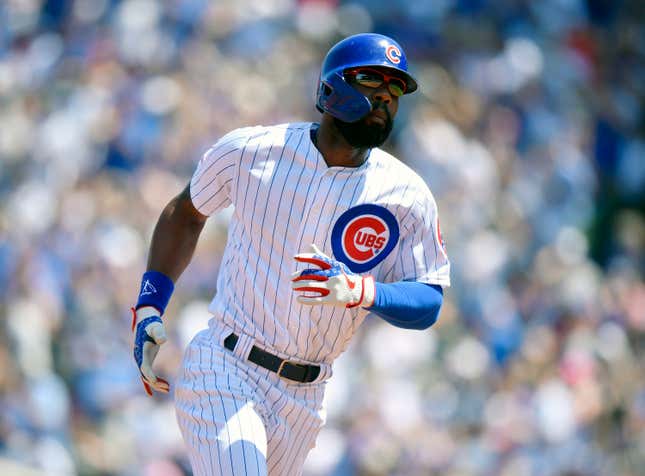
I don’t really watch baseball, in part because there was plenty of racism surrounding my own experiences with the sport as a youth. And as it turns out, Major League Baseball isn’t much different, at least according to a new report from ESPN.
Reporter Marly Rivera chopped it up with a few current and former MLB players in order to discuss their experiences dealing with racism, as well as changes they’d like to see in the sport. This group included LaTroy Hawkins, who played from 1995 to 2015 and currently serves as a special assistant for the Minnesota Twins; Jason Heyward, outfielder for the Chicago Cubs; Houston Astros manager Dusty Baker and others.
In revisiting his playing days, Hawkins recalled being harassed via hate mail.
“I would get letters in the mail, overnight express, just to call me a nigger,” he said. “Somebody paid back then, I think it was $11.45, $11.15, to send me hate mail. After I got so many, the clubhouse guy started opening up mail for me.
“I kept one letter, calling me ‘coon.’ [...] This person talked about my mother, my grandma, called us ‘coons.’ [...] I could not believe how someone would dislike somebody to that extent, someone you don’t even freaking know. Racists don’t care what position you play.”
Hayward shared his own painful recollection of playing for his hometown team during his time in the minors.
“Long story short, hometown team, drafted in the first round, and playing for the Rome Braves in Savannah, Georgia,” he said. “I was talking to Freddie Freeman after the game, and he had tears in his eyes. [He said], ‘Jay, did you hear the stuff people were saying to you?’ I said, ‘Yeah, I heard it, bro.’ And he replied, ‘I’ve never seen that before.’”
One topic that garnered plenty of input is how Black players have nearly evaporated from the major leagues.
“When I was playing, first off, there were considerably more Black players in baseball,” Los Angeles Dodgers manager Dave Roberts said. “I felt that baseball was moving in the direction of being more diverse. Unfortunately, we’ve gone backwards. I think Black players have always felt that they had to conform.”
“The environment for African American players during my playing days was good due to the fact the percentage of African American players in MLB was much higher than it is now,” New York Yankees announcer Ken Singleton said. “It seemed that every team had star Black players. Black players made up almost 20% of the players in MLB. That’s an average of five players per team. Now it’s less than 10%, and some teams don’t have any Black players. Fans were used to seeing Black players being among the best players in the game.”
The group also noted the differences between MLB and leagues like the NBA and NFL, where players are far more outspoken about racial inequity and the challenges they face as players.
“Strength in numbers has something to do with Black players being more outspoken in the NFL and the NBA,” Singleton said. “Those leagues would not exist without Black players.”
As far as the future of baseball, however, the group feels encouraged.
“I know it’s going to get better. I don’t want to say use the word ‘wait’ because Martin Luther King said, ‘Wait means never,’” Hawkins said. “But there are younger GMs now in the game who are more diverse-minded in their hiring practices. What Theo Epstein said was eye-opening for his brothers and his fraternity. Holding people accountable, adding diversity to the front office. Diversity is good for the game, it brings different perspectives, different thought processes and makes a better workplace.”
“We’re beginning that process in a new light,” Heward said. “Beforehand, when players spoke up, they received a lot of backlash. Now is the time when we have to speak up and continue those conversations.”
In all, ESPN’s report is a pretty good read that provides tremendous insight into many of the challenges Black players face in Major League Baseball. It also serves a reminder that the sport still has plenty of work to do in order to create a more diverse and inclusive environment.



